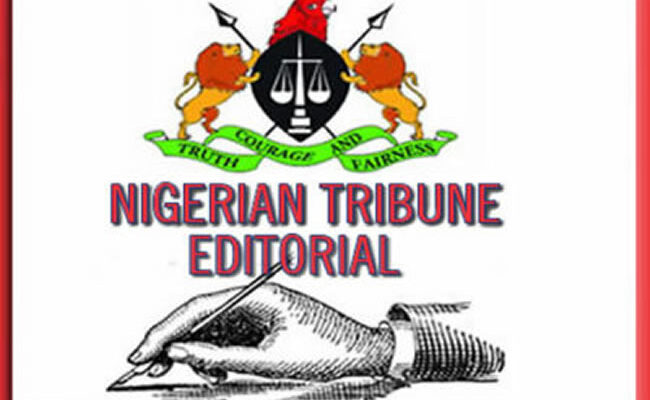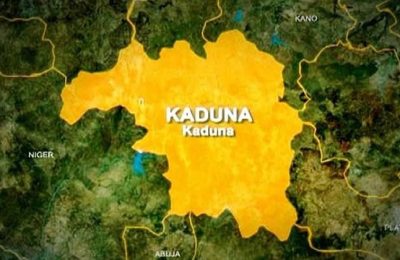TODAY, governments at all levels are celebrating Nigeria’s Independence Day. Nigeria is 64, as an independent country. It is Africa’s most populous country. It has, in the last six decades, weathered a lot of storms to be one of the world’s most remarkable, even notorious, countries. Globally, Nigerians rule every sphere of life, from the economy to religion, sports and entertainment. Warts and all, the Nigerian military and the police have made remarkable strides across the African continent and on the global stage, and the conception that many people have the world over about the African continent is basically Nigerian. Indeed, Nigerian cuisine is fast gaining the trust of people around the world, from Europe to America, and Asia. However, Nigeria’s essential problem, namely that of leadership, remains at the core of its troubles. Nigeria lacks leaders who care deeply about the people.
Enormously blessed with natural endowments, Nigeria suffers from the dearth of quality leadership. The leadership recruitment process, from party primaries to actual elections, is a study in brigandage. Party primaries and general elections are blatantly rigged, with the beneficiaries asking the aggrieved to “go to court” in an imperial, self-confident tone that suggests the absolute futility of such an exercise. Nigerian leaders huff and puff about their commitment to the cause of national development but it is mere artifice. Nigeria is home to the world’s poorest, the global capital of out-of-school children, open defecation, and worst electricity access. That is not fortuitous: leaders recreate society in their own image and if a country’s leaders are bad and govern in extremely bad ways, then the society will be an exact mirror of their personality. There is simply no way, with Nigeria’s natural endowments, that it would have been the global poverty capital with good leaders.

It is a no brainer that the oldest and simplest justification for government is protection of the citizenry from violence. According to the World Economic Forum (WEF), “The horrors of little or no government to provide that function are on global display in the world’s many fragile states and essentially ungoverned regions. And indeed, when the chaos of war and disorder mounts too high, citizens will choose even despotic and fanatic governments, such as the Taliban and ISIS, over the depredations of warring bands.” Around the world, the thinking today is that government, however defined, must guarantee happiness for the populace. In other words, it must be able to make a positive impact in the lives of the people. Here, in our view, is where the Nigerian dilemma lies. From military rule to the moment, what has been presented as leadership has been basically an affliction, a superstructure erected on the people’s pain. Government officials have prospered while the people have regressed, moving from the proverbial frying pan into fire. With every government, Nigerians point to their tolerable ordeal during its predecessor. The political leadership does not, of course, operate on the same wavelength as the people: it is up there in the skies, pontificating on the utopia it has created while on the actual earth that Nigerians inhabit, life is horrendously harsh. That is why it is not hard to see that today, as Nigeria turns 64, only the rulers who imposed themselves on the people are happy. They live in the lap of luxury, riding choice cars and drinking vintage wine while pontificating on the people’s pain. The state has abandoned its core responsibility of guaranteeing the security of life and property and creating an environment for people to actilalize their dreams. Nigeria is today one of the world’s most terrorised countries and at 64, there is very little for the people to celebrate.
Nigeria is rated by the statistical agencies as the country with the world’s worst electricity access but if the Minister of Power, Adebayo Adelabu, is to be believed, Nigerians now enjoy a more stable and regular electricity supply. Hear him: “The major achievement is the fact that today, we generate over 5,500 megawatts of power, we transmit and distribute it, and over 40 percent of customers today enjoy over 20 hours of regular power supply across the nation. You can see that there is a significant improvement between when we came in and now, which we intend to improve further.” This submission is strange. Yesterday (September 30), Nigeria’s projected population was 233,884,581. Going by the minister’s mathematics, more than 93 million Nigerians currently have access to 20 hours of electricity per day. But how do you generate such supply from a cumulative 5, 500 megawatts? Based on the international standard of 1,000 megawatts to one million people, nothing less than 93,000 megawatts is required to give 40 per cent of Nigerians reasonable access to electricity, and over 233,000 megawatts for its total population!
The picture in Nigeria’s oil sector is worse: only seven out of the 20 subsidiaries of the Nigerian National Petroleum Corporation Limited (NNPCL) are viable, even as the corporation battles N22 trillion debt. Nigeria is 64 today but Nigerians do not have the foggiest idea about how their oil sector is run, let alone what the pump price of fuel should be. In any case, with the ever increasing interest rate, the impossible exchange rate and the continuous hemorrhage of companies and jobs following the subsidy removal and naira floatation policies of the government, the auguries are indeed portentous.
A lot can be achieved by restructuring the polity, but Nigeria’s political class is not ready to do it. Ahead of the so-called review of the 1999 Nigerian Constitution, certain members of Nigeria’s 10th National Assembly said they would push for creation of state police. They mouthed this rhetoric in Kano State during the retreat organised by the Senate Committee on the Review of the 1999 Constitution. The lawmakers have been talking about state policing for years, and they will probably still be talking about it next year. There was no such prolonged talk when the 469 members of the National Assembly needed cars that cost N160 million each, or when the president and his deputy needed private jets. A new National Anthem surfaced with the speed of lightening when the lawmakers wanted it: it is issues that affect the populace that become the stuff of endless talk.
Nigerians should reinvent their existence and seek out a leadership that cares deeply about them. They should pay more attention to the leadership recruitment process. We see no positive future with the present crop of leaders. They are the only one happy today.
READ ALSO: Independence Day: IGP Egbetokun orders water-tight security nationwide







